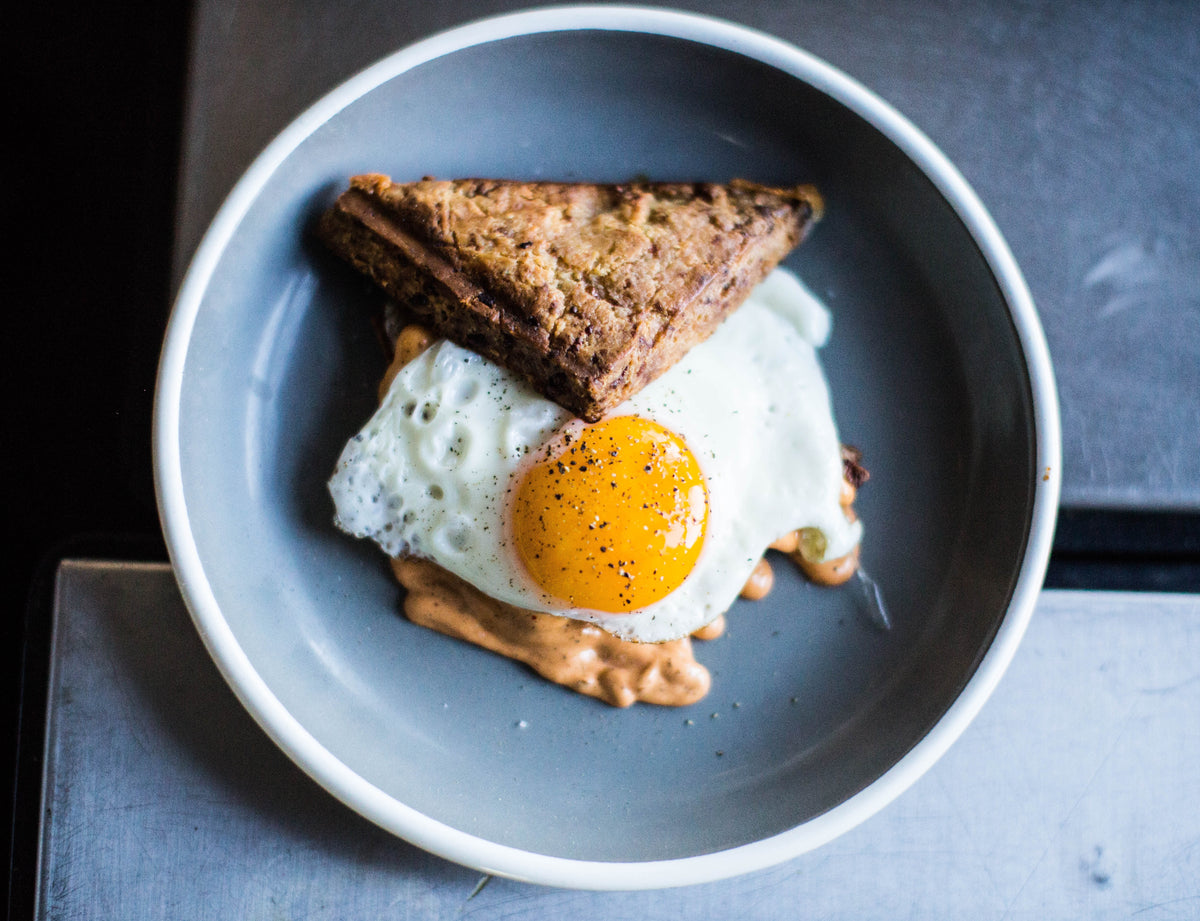
When you think of protein options for breakfast, you probably think eggs, right? Yes, definitely eggs. While there are certainly more options than just eggs -- think sausage, Greek yogurt, cottage cheese, smoothies, and of course, protein bars -- it’s time to start thinking outside of the box. While the previously mentioned breakfast options contain pretty good amounts of protein, there are tons of other foods that will get you the nutrition you need to kick off the day in a healthy, protein-packed way.
But first, let’s talk about protein. What exactly is it? What does it do for our bodies? Why do we need it? How much do we need? So many questions right? Don’t worry. We have plenty of answers for you.
Let’s chat PROTEIN!
Protein is a part of every single cell inside of our bodies. It’s used to build and repair tissue and is a building block for healthy skin, bones, muscles, cartilage, and blood. The human body completely depends on the amino acids that protein consists of. The function of protein is to build, strengthen or repair or things. Ladies - ever been told to eat plenty of protein for luxurious locks and tougher, less breakable nails? Men - ever been told to load up on the protein to get those sculpted muscles you’re working so hard for in the gym? Now you know why. The body’s cells, tissues, and organs cannot be regulate without a sufficient amount of protein.
Protein is one of the core macronutrients our body needs to survive and function properly. “Macronutrient” is a big, fancy, scientific word for the elements the body needs to stay healthy. Macronutrients include carbohydrates, fat, and protein. These differ from “micronutrients”, like vitamins and minerals, that our bodies also needs, but in much smaller quantities.
 One of the reasons we need to constantly get our fill of protein is because the human body does not keep a reservoir of it in our systems. Our bodies will in fact store carbohydrates and fat, but in order to keep those protein levels in stock (quite literally!), we need to be regularly feeding ourselves with this supplement.
One of the reasons we need to constantly get our fill of protein is because the human body does not keep a reservoir of it in our systems. Our bodies will in fact store carbohydrates and fat, but in order to keep those protein levels in stock (quite literally!), we need to be regularly feeding ourselves with this supplement.
Another important tidbit to know about proteins is that there are three types: complete, incomplete and complementary proteins.
Complete proteins: These foods contain all of the essential amino acids. They are mostly found in animal proteins like meat, seafood, dairy and eggs.
Incomplete proteins: The foods contain at least one essential amino acid. They are mostly found in plant proteins like grains, seeds, beans, peas and grass-fed protein supplements.
Complementary proteins: This is when two or more food with incomplete proteins can be combined to make a complete protein. This includes the following combinations: legumes + nuts, legumes + seeds, or legumes + grains. To get even more specific, think of rice and beans as a perfect example of two incomplete proteins combined to make a complete protein.
As a general rule, it is recommended that 10-35% of an adult’s calories should come from protein. Your daily requirements will vary depending on your calorie needs. There are plenty of factors that contribute to the variance in requirements, such as gender, age, and activity level. The USDA suggests that consuming 5 and 7 ounces of protein a day is optimal. Athletes, bodybuilders, and women who are pregnant may require additional protein to build and repair muscle.
If you’re looking for ways to keep your protein levels in check to ensure a healthy mainted body, there are plenty of choices to ensure the right intake.
- Experiment with your options. You don’t have to eat meat to get the necessary amount of proteins. You can rely on seafood, beans, tofu, nuts, and seeds.
- Enjoy raw nuts as a great source of protein, but avoid snack mixes that contain an unnecessary amount of added sugar.
- Try a superfoods cereal that contains supergrains like oats, amaranth, and quinoa.
- Consider jazzing up your favorite oatmeal with dried fruit, chia seeds, and nuts.

With breakfast being such an important meal of the day and protein being an essential nutrient for the body to function, it only makes sense that having a protein-packed meal to kick off your day is an excellent choice for success. When we start each morning, our bodies need a boost to get things going and our brains need a boost to start functioning. One of the more well-known benefits or protein is that it keeps satisfied for longer periods of time. This allows our brains to power through the first half of the day and keep hunger pains at bay -- something that often distracts us from having productive and efficient mornings. You probably aren’t surprised to hear that skipping breakfast is a major no no. Find a product that suits your busy lifestyle and fits your dietary needs. We strongly recommend something versatile that can be eaten at home or on the go so you never have an excuse to miss our favorite meal!


